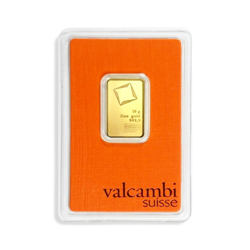Real assets are weighing more and more in savings strategies, and there are two fundamental reasons for it:
- Financial investments are yielding less with interest rates generally low or negative;
- Savings could be confiscated by banks (BRRD directive) or by insurance companies (Sapin II law).
By “real assets”, savers have real estate and gold first in mind, since the other categories (fine art, collectible cars, agricultural land, etc.) require an expertise and knowledge that cannot be improvised. “Debanking” benefits those two assets, real estate accounting for much more volume than gold.
However, savers are often quite confused about gold and real estate. First and foremost, a large number of savers think they actually own gold when their banker buys them paper gold (ETFs or mining stocks), which is a tragic error. Only physical gold held in one’s own name is worthy of interest; the rest are just financial products that can be subjected to market fluctuations, including bankruptcy in case of a financial or banking crisis.
On the other hand, savers tend to regard real estate and gold as interchangeable guarantees of wealth protection: this is also an error. A piece of real estate is a specific asset – one buys such and such an apartment, with all the risks involved. If defects start to show up, if the neighbourhood is neglected, if some dope dealers set office in the lobby, its market price will be negatively affected. In fact, each acquisition constitutes a kind of bet, with the price per square foot just being a mean reference. On the contrary, gold is a generic asset: it is the same everywhere, a gold bar is a gold bar, and it sells for the same price worldwide, so there is never any surprise. There is no specific risk (as there are with stocks as well).
As a logical consequence of its generic characteristics, gold is divisible: one can purchase bars, ingots or coins, and sell some of them back, whilst one cannot sell half an apartment, for example. There are no fungible assets in real estate; that is, unless you own a large quantity of studios and two- or three- bedroom apartments of which you can sell a precise percentage... but the amounts in play are of a different order. And, finally, it follows that gold is liquid. It is a long-term investment but, in case something goes wrong, one can sell gold bars or coins in less than 24 hours, whilst it could take months to sell an apartment, if things go well.
To real estate’s credit one must, of course, take into account the fact that it creates revenue, contrary to gold, which can represent an enviable yield in this depressed environment we are in. But one must also include the fiscal and regulatory dimensions: gold, considered as an investment and only that, is subject to taxation on added value like other financial assets, no more and no less. On the contrary, with housing being a strong political issue, governments everywhere implement new laws and regulations, and levy new taxes, which create permanent legal and fiscal instability – an added risk. Furthermore, in the worst of cases, gold travels real well, contrary to a house! Well, decidedly, real estate and gold are not the same.
Reproduction, in whole or in part, is authorized as long as it includes all the text hyperlinks and a link back to the original source.
The information contained in this article is for information purposes only and does not constitute investment advice or a recommendation to buy or sell.

















